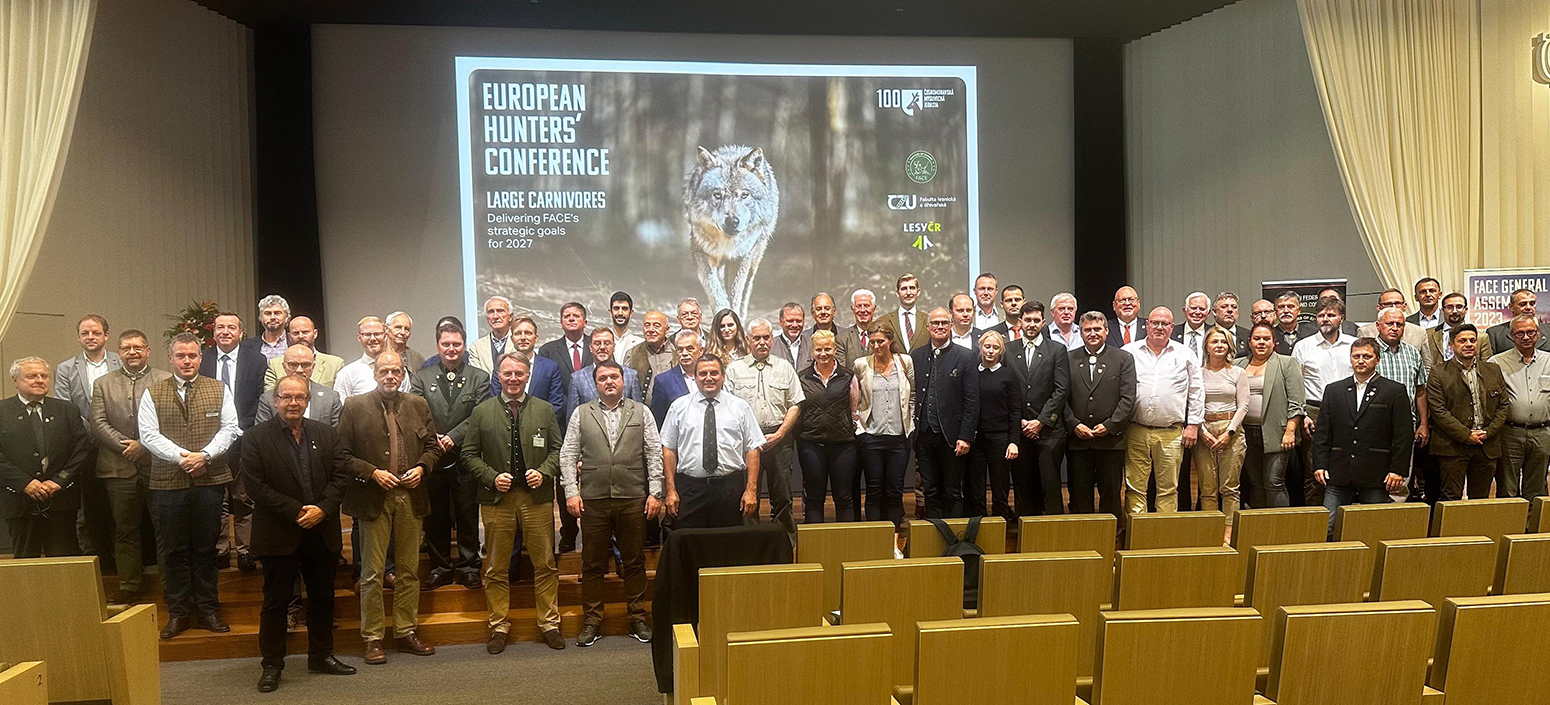
27 Sep 2023 Press Release: Real Solutions Required for Large Carnivore Conservation and Management in Europe
Prague, 27 September 2023 – Today, the heads of Europe’s national hunting associations from over 30 countries gathered in Prague to discuss the latest developments on large carnivores in Europe. A key focus was on the European Commission’s recent consultation and communication, which recognises that conflicts are increasing and urges local authorities to make full use of existing derogations from the strict protection: “The return of the wolf to EU regions where it has been absent for a long time is increasingly leading to conflicts with local farming and hunting communities, especially where measures to prevent attacks on livestock are not widely implemented”.
Hunters are key stakeholders in large carnivore conservation and management. At the conference, attendees discussed several successful examples of large carnivore conservation, with hunters being actively engaged in conservation, monitoring, and management. However, as some large carnivore populations are increasing, this can result in increased conflicts, often exacerbated by the illogical reaction to increase the level of protection rather than improving the management measures for better coexistence.
In addressing the challenges of large carnivore conservation, it is crucial to consider the impacts on local livelihoods and communities especially where inappropriate management frameworks exist. A worst-case scenario is when local communities deal with carnivores themselves. Conservation and management strategies must, therefore, be inclusive, taking into account the needs and perspectives of local people.
The European Commission has stated on several occasions that Member States should fully use the flexibility in the Habitats Directive, including more recently to deal with the concentration of wolf packs in some European regions and the danger for livestock and potentially also for humans. Regrettably, the revision of the EC Guidance document on strict protection is more restrictive than the previous version. There is also a widespread lack of recognition that management is compatible with the long-term conservation of the species.
There is now an expectation in the hunting community that the Commission aligns the EC Guidance with its more recent statements on the wolf.
The conference heard a range of presentations from Sweden, Romania, Latvia, Slovakia, the Czech Republic, Germany, Croatia, and Slovenia. These were supported by several interventions from FACE Members in other European countries. Concluding the conference, Torbjörn Larsson, President of FACE, welcomed the announcement from the European Commission to look into a proposal to modify, where appropriate, the protection status of the wolf and introduce further flexibility in the legal framework. He concluded: “Now it the time for real action to ensure the conservation and management of the wolf and other large carnivore species with Europe’s rural communities”.

